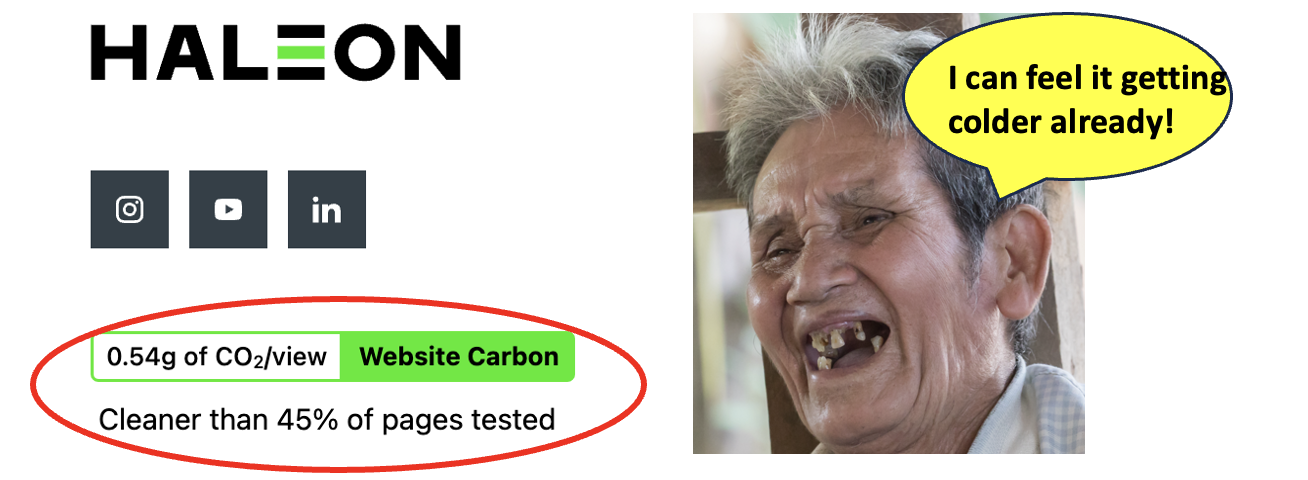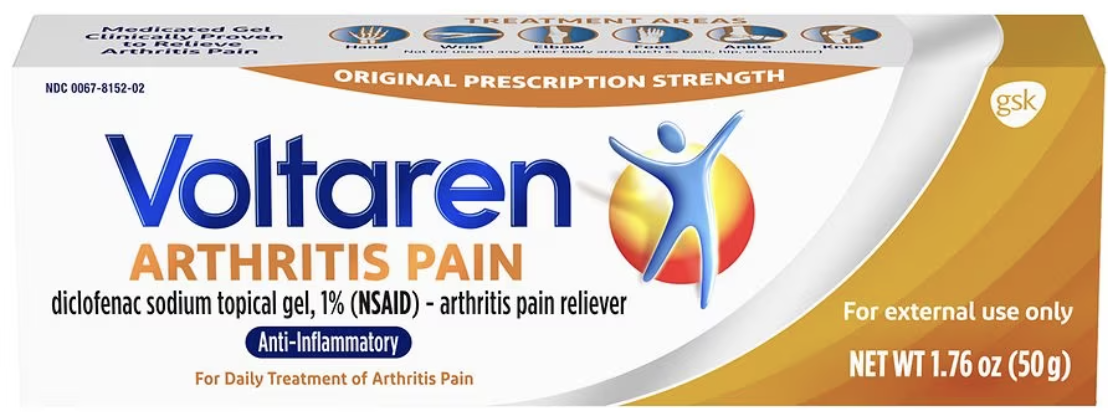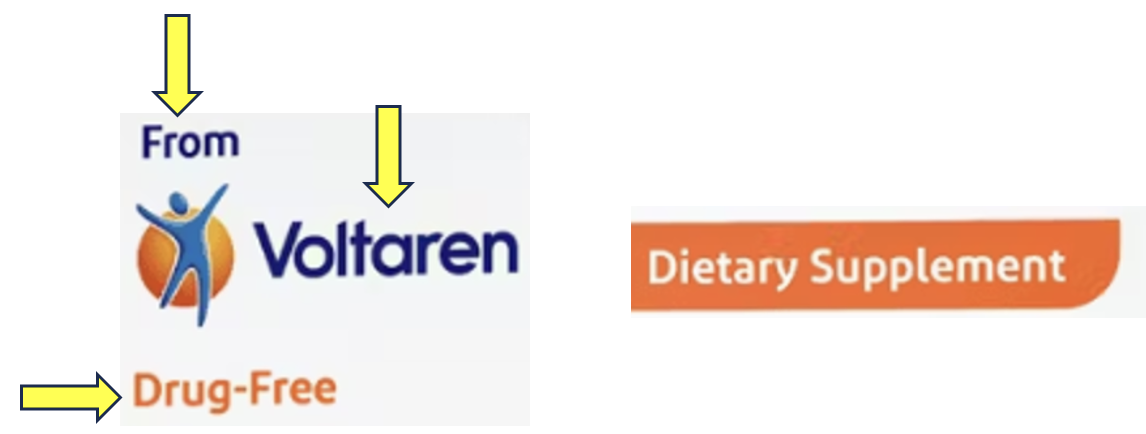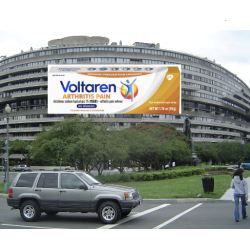A new company, Haleon, now sells dozens of products from what was formerly GSK's huge consumer health division, which was spun off in 2022. The company pretends to be highly ethical in its website propaganda, even doing its part to combat climate change by using low-carbon web pages (??). But does it practice what it preaches? Welcome to Voltarengate.
Having come from the pharmaceutical world, I tend to be on the supportive side of the industry because I spent more than 20 years finding out how insanely difficult it is to get a drug from the earliest stages (drug discovery) to the pharmacy shelf. Based on statistics that I estimated more than a decade ago, a chemist who has worked in drug discovery for 20 years will have about a 5% chance of ever coming up with something that will be on the market (1).
Although I despise prescription drug TV ads, it would be wrong to dismiss the extraordinary accomplishments that have come from the industry resulting in game-changing (and life-saving) therapies. These include HIV/AIDS, hepatitis C, certain cancers, and more recently obesity, a breakthrough that my colleague Dr. Henry Miller has written about. (His article will be published on this website on January 30.) That said, I have not been shy about calling out companies for example, here and here, that take advantage of the system solely for financial gains.
Something that most people fail to realize is that a pharmaceutical company isn't a single entity; it's an aggregation consisting of multiple components, some focusing on the science, and others on the sales. This tarnishes the industry (unfairly IMO). For example, the scientists who struggle for decades to address a real medical need dwell in obscurity (and don't get even remotely wealthy) are generally considered "good guys." But in most companies, it is the empty suits upper management who are the "bad guys" – they get wildly rich (and get to fly in helicopters) often without contributing anything of value. Discovery scientists despise do not care for upper management (or the board of directors). And to the suits, scientists dwell somewhere on the continuum of cockroaches and junk mail. OK, rant over.
There is another sector in drug companies; the over-the-counter and consumer health divisions. Their contribution to human health is approximately zero; they exist to figure out how to sell more of the SOS (SO = same old...) to people in different colored boxes and ridiculous combinations of two or more drugs, something I hammered GSK about recently.
GSK is back on the SL (L = list). Sort of.
Remember that GSK is also a multi-faceted company. I have no problem with their R&D, but the OTC division is once again not looking so wonderful. The latest incident makes what I wrote in my previous article look like a Hallmark card. We're talking about some significant sleaze here. But in this case, assigning blame to GSK may be (at least partly) unfair. Here's why. (2)
Enter Haleon, a new Playa
You probably haven't heard of Haleon (I hadn't before). It is a new, huge, multinational consumer health/OTC drug company based in the UK. The company was formed in 2022 when ----> GSK (there's that name again) spun off its consumer healthcare division (3). They sell a lot of stuff:

Haleon products. Source: Wikipedia. Pay special attention to the red box.
The company puts on a great show about its ethics and commitment to [the usual mission statement BS]:
Being a responsible business is one of our strategic priorities. We bring this to life through three interconnected focus areas: our commitment to making everyday health more inclusive, reducing our environmental impact, and operating with ethical, responsible, and transparent behaviours and standards of conduct.
Haleon website
Really?
The ethics of Haleon
Their website is carbon-friendly!

Seriously? Website carbon? Haleon guys, please tell me with a straight face that this will make any difference in our climate. Good luck. But suppose I'm wrong (this happens every decade or two), and it does make a difference. This could have unintended consequences...

Images: Stockbridge, Pix4free, Mayo Clinic, Amazon
Voltarengate
Haleon sells Voltaren gel, a clinically proven product for arthritis pain. No problem here. The stuff works; its active ingredient is diclofenac, a widely used NSAID.

And there's this: [my emphasis]
We endeavour to always do the right thing, including by respecting human rights, protecting the health and safety of people, prioritising product quality and safety, and responsibly marketing our products and services.
Haleon site
Whoa! Just my opinion here, but that statement isn't exactly backed up by their marketing practices. The following is jaw-dropping. Haleon also sells this:

Voltaren in a pill form. Nothing with that, right?
Wrong. Let's look a little closer at the box.

Voltaren is the brand name for diclofenac. By any definition, it is a drug. Note the following:
- The blue guy getting run over by an orange circle is the logo for Voltaren (the drug).
- The same blue guy and orange circle appear on the bottle of pills.
- The word "from," which is visible if you own a scanning electron microscope, is very odd. And also very suspicious. More on this later.
- How can a drug be drug-free?
- It can't unless it's a dietary supplement.
- This stuff is just that. A non-drug drug that "supports (or promotes) joint comfort and movement."
- This is classic doublespeak, which is permitted because of the chicanery used in the Dietary Supplement Health and Education Act of 1994
Then there's this:

- The product "From Voltaren" contains no Voltaren
- It contains Boswellia and Turmeric, which might (more likely might not) help promote "joint mobility and resilience."
- Roughly 100% of the world will interpret this phrase as a therapy for arthritis pain.
- The standard supplement disclaimed (right) is DSHEA doublespeak. It is the lifeblood of the dietary supplement industry.
- If "Phony Voltaren" treats arthritis, it is, according to the FDA definition, a drug.
- If it doesn't treat arthritis, then why is Ethical Haleon selling it?
The real sleaze
Please believe that Haleon knew exactly what it was doing with this product. It is using legal, cleverly disguised (read: lawyers) wordsmanship to, at the very least, suggest that the pills and the gel are different forms of the same stuff. The package cleverly supports this deception. The logo is the same for both products. This is no accident.
The word "from" is perhaps the sneakiest trick Haleon used.
First, the tiny word "from" (<---- yes, this is intentional) is not exactly the first thing anyone will notice when they are navigating the hopelessly confusing pain relief aisle at the pharmacy. And even if someone notices it, they will almost certainly think they're buying "real Voltaren." Second, What the hell does "from" even mean? Voltaren is the brand name for the NSAID diclofenac, not a company. How can you name a product, not to mention a different one, after a drug name? This makes NO sense. Are any of these really all that different?
- Corn and callus remover FROM Lipitor
- Jock itch relief FROM Prozac
- Breath freshener FROM Ambien
Dr. Henry Miller was perplexed when I first first brought Voltarengate up. He offers a quote.
Shakespeare wrote, “What's in a name? That which we call a rose by any other name would smell just as sweet.” When it comes to drugs, the name does make a difference, so that consumers know what they're buying.
Dr. Henry Miller, one cool dude. Private communication 1/10/24
NOTES:
(1) I happen to be one of them. Although I did not make Tygacil, an antibiotic to treat drug-resistant bacteria, with my own hands it did come from my group.
(2) Glaxo also engaged in shady business practices – false claims about the superiority of one formulation of Voltaren – which cost the company a $4.5 million fine.
(3) Glaxo and Pfizer merged their consumer healthcare divisions in 2018.

